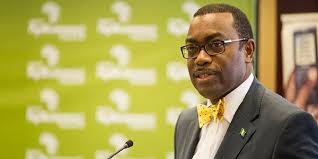Business
AfDB approves over $250m for devt projects in Mozambique, Rwanda, and Mauritius

The African Development Bank (AfDB) has announced the approval of major development initiatives across Africa, including a $17 million grant to support recovery efforts in conflict-affected northern Mozambique, €173.84 million to boost Rwanda’s energy sector, and a strategic push for structural reforms in Mauritius to unlock capital and accelerate sustainable growth.
$17 Million Grant for Conflict-Affected Northern Mozambique
The AfDB Board of Directors approved a $17 million grant to finance the Resilient Investment for Socio-Economic Empowerment, Peace, and Security (RISE-PS) Project in Mozambique’s Cabo Delgado province. The initiative aims to address the root causes of fragility by creating 24,000 jobs – 60% of them for youth aged 18 to 35, and 50% for women – ultimately benefiting over 100,000 people.
Since 2017, violent extremist attacks in Cabo Delgado have killed at least 4,500 people, displaced more than one million, and destroyed nearly 5,000 small businesses. Youth unemployment stands at 25%, with young women particularly vulnerable due to limited education and high rates of gender-based violence.
“This is about more than economic recovery – it’s about giving young people a reason to believe in their future,” said Babatunde Omilola, Manager for Human Capital, Youth, and Skills Development at the AfDB’s Regional Office for Southern Africa.
Key components of the RISE-PS project include:
Rehabilitation of 150 community facilities, including schools, youth centers, health posts, rural markets, and water systems.
Training for 9,200 individuals in market-oriented vocational skills, with grants for 2,000 youth and women-led enterprises.
Construction of a climate-smart SME village at the Afungi Industrial Hub, accommodating 100 SMEs.
Partnerships with TotalEnergies and ExxonMobil to provide 1,055 youth with six-month internships, targeting 70% permanent job placement.
The $28 million project will be implemented between September 2025 and August 2029, with funding from AfDB’s Transition Support Facility ($17m), the UNDP ($4.2m), Germany ($2.4m), private sector partners ($3.1m), and the Government of Mozambique ($1.3m).
€173.84 Million for Rwanda’s Universal Energy Access
The AfDB Board has also approved €173.84 million for Rwanda’s Energy Sector Result-Based Financing II (RBF II) program, aimed at modernizing the national electricity network, expanding clean energy access, and strengthening institutional capacity.
The Asian Infrastructure Investment Bank (AIIB) will co-finance the project with €86.92 million, bringing the total program cost to €260.76 million. This is the Bank’s second results-based operation in Rwanda’s energy sector, following a $305 million program approved in 2018.
The RBF II program, aligned with Rwanda’s Energy Sector Strategic Plan (ESSP II 2024–2029), will:
Connect 200,000 households and 850 productive-use customers to the national grid.
Provide 50,000 new off-grid electricity connections.
Distribute clean cooking devices to 100,000 households and 310 public institutions.
Install street lighting on 200 km of roads in secondary cities.
This initiative supports the AfDB’s High-5 priorities, particularly “Light Up and Power Africa,” and contributes to the Mission 300 initiative with the World Bank to connect 300 million Africans to electricity by 2030.
Mauritius: AfDB Calls for Structural Reforms to Unlock Capital
In Mauritius, the AfDB has urged bold structural reforms to enhance long-term, sustainable growth, as outlined in its 2025 Country Focus Report titled “Making Mauritius’ Capital Work Better for its Development.”
The report highlights the country’s robust economic performance, with a 4.9% real GDP growth rate in 2024, driven by construction, financial services, trade, and tourism (with 1.38 million arrivals, 97% of pre-pandemic levels). However, structural challenges, education quality gaps, and youth emigration continue to impede growth.
The report estimates Mauritius’ total national wealth at $96 billion – six times its GDP—underscoring the untapped potential of its human, financial, and ocean economy resources.
Mahess Rawoteea, Deputy Financial Secretary at the Ministry of Finance, welcomed the AfDB’s recommendations, highlighting plans for a Climate Finance Unit to bridge climate funding gaps and investments in renewable energy and blue economy sectors.
Prof. Kevin Urama, AfDB Chief Economist and Vice President, emphasized Africa’s broader transformation potential:
“If Africa commits to investing in its own development and managing its assets efficiently, it can reduce external dependency and harness its enormous capital for transformative growth,” he said.
Shared Vision for Africa’s Growth
The three initiatives align with the AfDB’s strategic frameworks, including its Ten-Year Strategy (2024–2033), the Strategy for Addressing Fragility and Building Resilience (2022–2026), and the Jobs for Youth in Africa strategy (2016–2025), which aims to create 25 million jobs and positively impact 50 million African youth by 2025.
By combining infrastructure development, energy access, human capital investment, and structural reforms, the Bank is positioning African nations to achieve long-term stability, economic resilience, and inclusive growth.


